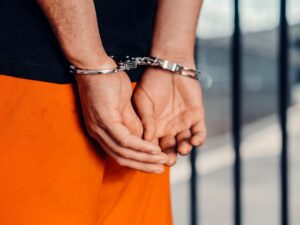Power to Impose Modified Punishment

On 16/02/2021, division bench of Hon’ble Supreme Court of India, while dealing with Criminal Appeal No. 135 of 2021 titled Gauri Shankar Vs. State of Punjab, has observed and held that, It is true that the punishment of remainder of natural life could not have been imposed by the learned trial Judge but after looking into the entire case, we consider it appropriate to confirm the sentence of imprisonment for life to mean the remainder of natural life while upholding the conviction under Section 302 IPC.
Constitution bench judgment of Hon’ble Supreme Court of India in Union of India Vs. V. Sriharan @ Murugan and Others, 2016(7) SCC 1, was referred in this case, wherein it was held that, “We, therefore, reiterate that the power derived from the Penal Code for any modified punishment within the punishment provided for in the Penal Code for such specified offences can only be exercised by the High Court and in the event of further appeal only by the Supreme Court and not by any other court in this country. To put it differently, the power to impose a modified punishment providing for any specific term of incarceration or till the end of the convict’s life as an alternate to death penalty, can be exercised only by the High Court and the Supreme Court and not by any other inferior court.”
In the instant case, accused/appellant committed the murder of two minor children aged 4 years and 2 years in brutal manner by administering celphos to them. The Charge under section 302 of IPC, 1860, had been established against the accused/appellant in trial court and he was sentenced with imprisonment for life which would mean a remainder of natural life the same had been confirmed by the Hon’ble High Court. It was contended on behalf of accused/appellant that while convicting the accused appellant for offence under Section 302 IPC, he has been sentenced with imprisonment for life which would mean a remainder of natural life which was not in the domain of the trial Court, and this could have been exercised only by the High Court or by this Court.